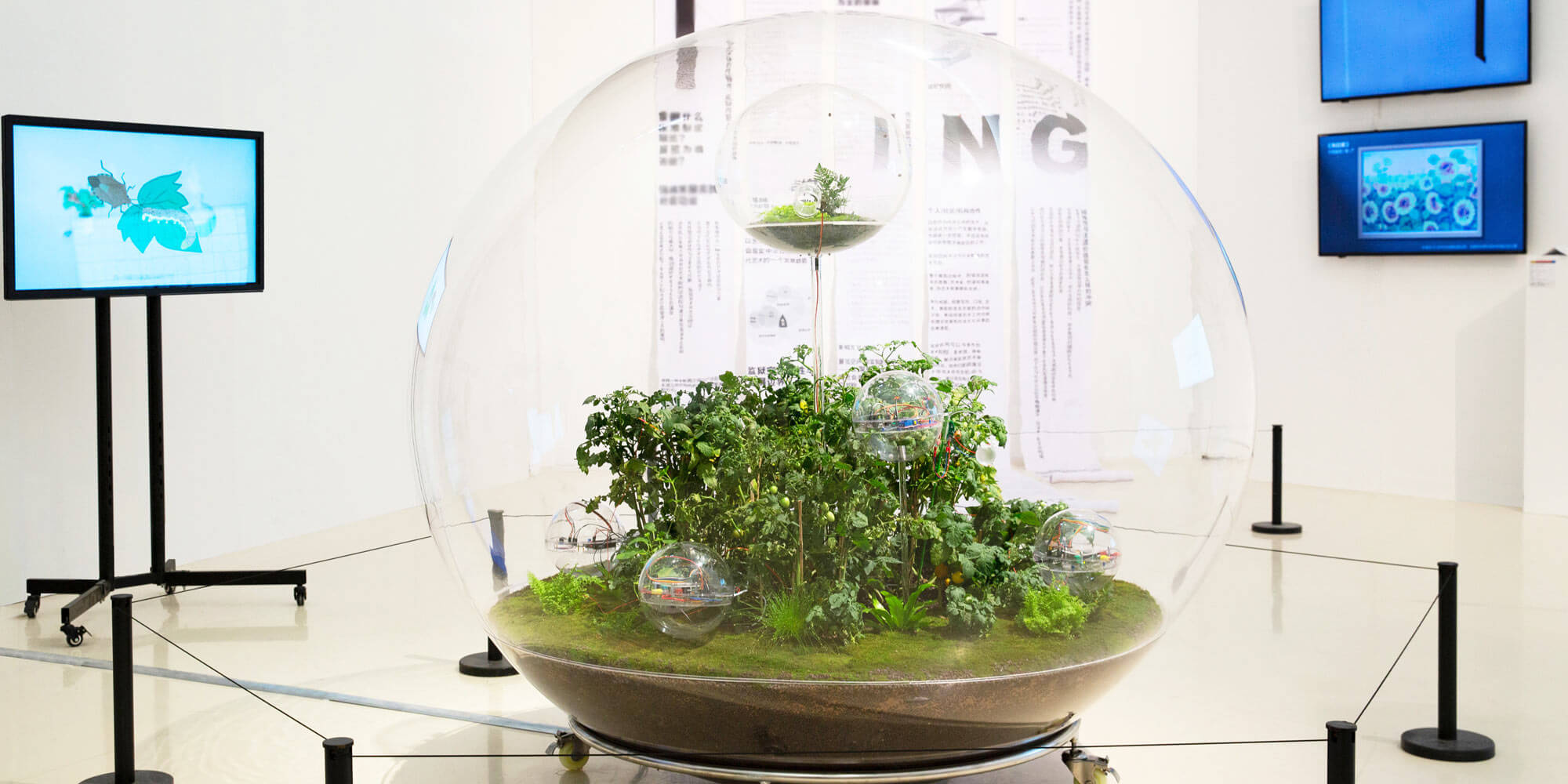Honorary Mention
With ecological relationships as the breakthrough point and based on plant intelligence research, the Plant Intelligence Plan recognizes the initiative and rights of plants. The plan uses biotechnology tools and materials to restore the ecological relationship between commercially bred crops and animals, which human beings have alienated. Ecological Art often discusses and thinks about ecological problems through the artistic practice of ecological restoration (restoration of the physical ecological environment). As an Ecological Art practice, this work is not the restoration of the physical ecological environment but the restoration of the ecological relationship between animals and plants. This is one of its characteristics and it explores a new ecological restoration form.
This work advocates the world view and value of deep ecology and advocates non-anthropocentrism, which is another characteristic of the work. This work is not an Ecological Art practice based on the value of shallow ecology. It is not an ecological improvement art practice based on anthropocentrism value, nor an artistic practice of improving ecology only for human survival. The work focuses on the ecological relationship between plants and animals neglected by humans, the “lord of all creation.” It proposes an improved value that removes anthropocentrism, criticizing anthropocentrism and the alienation caused by capital to ecological relations by restoring the aforementioned ecological relations between animals and plants. It advocates the construction of a new order of human civilization rather than a simple appeal to protect the ecology for human survival—a reformist value of the old system. It inspires people to rethink the relationship between man and ecology and calls for a return to equal ecological relations of non-anthropocentrism.

Credits
Artist: Zhang Tianyi (CN)
Photography: Zhang Tianyi (CN)
With support from: School of Design of the Central Academy of Fine Arts
Special thanks to: Chen Xiaowen, Fei Jun, Song Xiewei
Biography
Zhang Tianyi (CN) is a Beijing-based artist, currently a PhD in Art and Technology research at the Central Academy of Fine Arts (Beijing). She holds a master’s degree in Art and Technology from the School of Design of the Central Academy of Fine Arts and studied at the École Supérieure d’Art du Nord-Pas de Calais, France. Her creative and research interests are mainly in Ecological Art and BioArt. Her ecological artworks use interdisciplinary research as a creative method and regard technology as an important opportunity for ecological restoration. She is keen to explore new ecological restoration methods by combining machines and ecology, as well as new languages of Ecological Art. Based on the above Ecological Art practice, she discusses the relationship between humans and ecology in the latest scientific and technological context and the equal ecological relationship of non-anthropocentrism.
Jury Statement
“If intelligence is defined as the ability to solve problems, plants have a lot to teach us,” says Stefano Mancuso. This work brings us closer to an awareness of the plant kingdom and how all beings need each other in order to exist and coexist. None of the organisms that exist in nature are autonomous or independent; rather, all organisms (including humans) are part of complex interconnected ecosystems. In this same line of thought, many scientists like Mancuso agree that plants are living beings that communicate with each other and with other species, since they are social beings. The Plant Intelligence Plan posits a return to the non-anthropocentrism of egalitarian ecological relations and advocates rebuilding the order of human civilization instead of the values enhanced in the old regime by simply calling for ecological protection, thereby inspiring people to reflect on the relationship between humans and ecosystems. In this project, Tianyi Zhang starts from ecological relationships as a departure point and bases her work on research on the intelligence of plants, thus restoring the lost ecological connectivity between commercial crops and animals through biotechnology and biomaterials.



